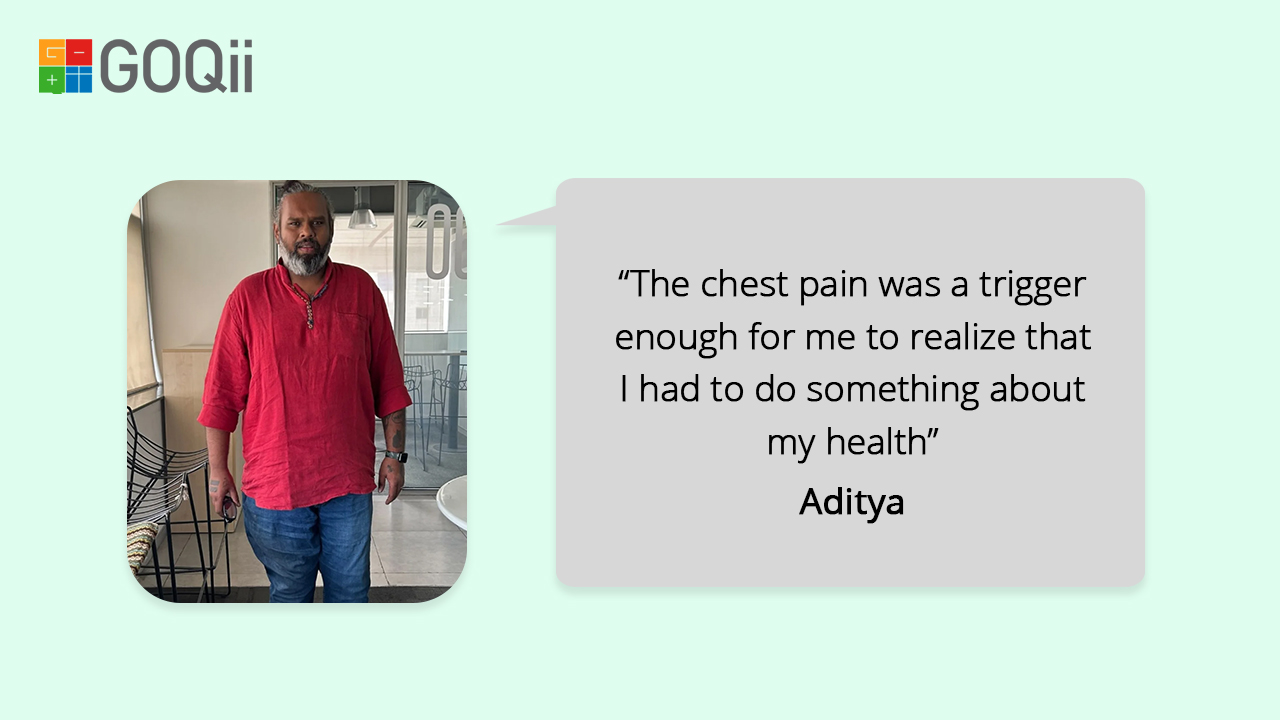
Are you facing issues with weight loss? Have you tried everything from fad diets to exercises to health clubs but found no permanent results? At some point, you may have even gained the kilos almost as quickly as you lost them. So when it comes to weight loss, what exactly works?
As each person’s body needs and compositions differ, weight loss works differently for different people. What remains common is the fact that weight loss needs to be holistic and diet alone isn’t the best method. The ideal method is a combination of various lifestyle factors.
The key to weight loss is making permanent changes in your eating habits as well as lifestyle. It is said that weight gain is not quick and is not the result of days or even a few months. It’s a result of years of overeating. The safest and the most effective way of slimming is to lose weight sensibly. For instance, a kilo in a week is quick, safe and manageable.
Crash diets should be avoided because more often than not, they fail. A severe diet can slow the body’s metabolism down. The key to successful weight loss is making permanent changes in your eating habits. Do not try to revamp your diet all at once. Start with a few adjustments and gradually build on them until balanced nutrition choices become a regular part of your routine. Gradual changes in diet are more likely to become habits eventually.
Some Myths, Tips & Funny Tricks For Weight Loss
Myths
- A glass of warm water in the morning helps you lose weight: Many believe that consuming warm water on an empty stomach is a cure for excess weight. They believe that hot water dissolves fat but the truth is that fat does not dissolve in water
- Switching sugar with honey will aid weight loss: I agree that honey has many therapeutic and curative powers but curing obesity is not one of them
- Bananas are fattening: This is the most misunderstood fruit and has calories as much as any other fruit. Also they are a wonderful source of potassium. They are filling and assuage constipation
- Standing while eating burns more calories: The truth is you tend to eat more while standing. I always recommend one to sit and eat unless circumstances demand otherwise
- Skipping breakfast is good during dieting: It’s recommended never to skip breakfast or else you tend to overeat in your next meal. After dinner, our body is in the fasting state and next morning when we wake up, our body needs fuel to get going
- Potatoes are fattening: It’s safer to consume potatoes over breads as breads are twice as fattening as potatoes. Go for boiled potatoes rather than fried ones
- Saunas help in shedding kilos: You may feel rejuvenated and great sitting in a sauna but what you really lose after one session is merely the weight of water. Once the fluids have been replenished, your weight comes back to normal
Tips
- Eat plenty of green leafy veggies, fruits, and whole grains
- Drink plenty of water. This will keep off hunger. Sometimes, what we often think as hunger is in fact thirst. Here’s how you can differentiate between hunger and thirst
- You need to watch the nutrients that you consume. Divide your entire day’s plate into 4 quarters. Fill more than half of your plate with veggies and fruits. Remaining could be balanced between dairy, beans or cereals
- Try to go for small frequent meals instead of typical 3 square meals i.e. Breakfast, Lunch and Dinner. Ideally, you should consume some food after every 2.5- 3 hours
- Have a colourful meal. By colours I don’t mean artificial/synthetic colours. What I mean is choose foods with colourful veggies and fruits and make your plate aesthetically attractive
- Eat your meals mindfully and chew thoroughly. This will help in portion control, better digestion and reduces the chances of overeating
- If you have a sweet tooth, don’t hold the guilt, satisfy it. Choose a sweet, like a candy or peppermint, which will last in your mouth for some time and tastes heavenly. If it is a high calorie sweet loaded with sugar and fat, take just a bite. Remember taste is what you want, not the calories
- If you happen to treat yourself with some sweets or fried foods, do so at breakfast. As our metabolism is more active during this time of the day. Plus, you have an entire day to burn off the extra calories
- Sleep deprivation can cause you to snack unnecessarily. Have a good rest and sleep for weight moderation
- Focus on deep breathing, into your stomach and not just your chest. Oxygen is one key to lose weight, as fat burns in the flame of oxygen. Take equal time to exhale so as to eliminate toxins from the body
- Don’t miss your daily workout. If you don’t have the luxury of time, try and be active for at least 20 minutes per day as it’s always said that a little workout is better than no workout
Tricks
- Develop a reward system. It’s proven that when you have something to look forward to at the end of each milestone, it automatically helps to mentally and emotionally shorten the cycle of long term success
- While setting a target, try to be realistic and do not dream of a petite figure. It will boost your confidence once you achieve that realistic goal
- This sounds silly but really works (personal experience). When you are tempted to reach out for that forbidden snack, before satisfying your taste buds, just take a deep breath & count to 100. Usually, by the time you finish counting to 100, your craving would have vanished
- Chocolate craving is the most addictive of all. Next time you feel like eating a chocolate, just take a whiff of a strong perfume. This eases the craving
- Pinch your ear to lose your appetite! Surprising, isn’t it? Well Reflexologists believe that pinching your ear will curb cravings and reduce your appetite
- Above all, always be motivated! Think thin and fit. Imagine yourself at the weight you would like to be or the clothes you would like to fit in. Also picture how others will react to you at your new weight and look. Enjoy the feelings that these thoughts will evoke as they will keep you motivated for the long run!
The takeaway message here is that weight loss comes as a by product of an active and healthy lifestyle. It’s you who has to get you off the couch to exercise, cook a healthy meal and move that body!
Do you have any other myths, tips or tricks you’d like to share? Drop them in the comments below! For more on Weight Loss, check out Healthy Reads. For the right guidance and motivation to work towards your health goals, subscribe for GOQii’s Personalised Health Coaching here.
#BeTheForce

 You might have been trying hard to lose that stubborn weight with sincere healthy food habits and sweating hard through physical activities. Despite your efforts, that scale doesn’t seem to budge. You might be wondering why. To understand why, you will need to understand what Obesity is.
You might have been trying hard to lose that stubborn weight with sincere healthy food habits and sweating hard through physical activities. Despite your efforts, that scale doesn’t seem to budge. You might be wondering why. To understand why, you will need to understand what Obesity is. When someone says “horror”, what do you imagine? Definitely nothing pleasant but something extremely scary, right? Do you picture ghosts and demons? If your perception of horror is limited to only supernatural occurrences, you might want to take a big step back. While supernatural entities are subjective, health issues are very much real and their stats are horrifying to say the least.
When someone says “horror”, what do you imagine? Definitely nothing pleasant but something extremely scary, right? Do you picture ghosts and demons? If your perception of horror is limited to only supernatural occurrences, you might want to take a big step back. While supernatural entities are subjective, health issues are very much real and their stats are horrifying to say the least.


